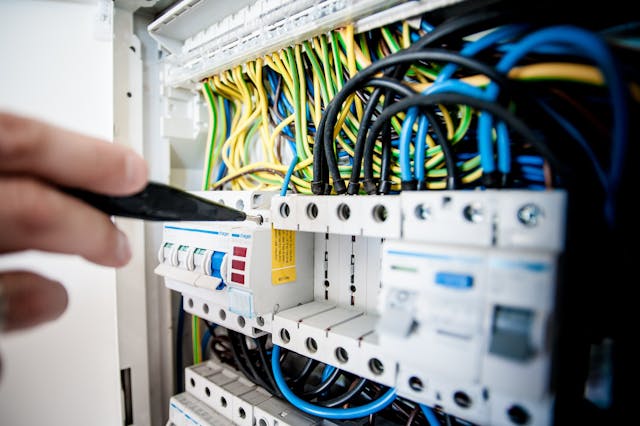
If you’ve ever been frustrated by your circuit breaker tripping unexpectedly, you’re not alone. This common electrical problem can impact your daily routine and often leaves homeowners wondering what’s causing the issue.
A circuit breaker is designed to protect your wiring and prevent electrical overload by interrupting the flow of electricity when something goes wrong. When your breaker trips, it cuts off power to prevent overheating, which can lead to electrical fires or damage to appliances.
Understanding the reasons behind frequent tripping is important to know what you can do about it. Here are a few common reasons your home’s circuit breaker keeps tripping.
1. Overloaded Circuits
One of the most common reasons for a circuit breaker to trip is overloading the circuit. This typically occurs when too many devices are plugged into a single outlet or circuit, drawing more power than it is designed to handle. Consider redistributing your devices across multiple circuits to avoid this issue.
2. Short Circuits
A short circuit happens when a live wire comes into contact with a neutral wire. This causes a sudden surge of electricity, resulting in the breaker tripping. Short circuits often point to faulty wiring or damaged insulation, which may require professional diagnosis and repair.
3. Ground Faults
A ground fault occurs when the live wire touches the ground wire or the grounding system. This issue is particularly common in areas where water is present, like kitchens and bathrooms. Ground fault circuit interrupters (GFCIs) help to protect against this, but if a circuit keeps tripping, it could indicate a serious issue that needs to be addressed.
4. Faulty Appliances
Sometimes, the problem isn’t with the wiring but with the appliances themselves. A malfunctioning appliance can cause a breaker to trip whenever it is plugged in. If you suspect an appliance is at fault, try unplugging it to see if the breaker holds. If it does, it may be time to repair or replace the appliance.
5. Aging or Damaged Wiring
Over time, electrical wiring can deteriorate, leading to an increased risk of tripping. Damaged or frayed wires can create short circuits and increase the risk of electrical fires. If your home is older and has not been rewired, it’s time to schedule an inspection with a licensed residential electrician.
What to Do If You Have a Tripping Circuit Breaker
If your circuit breaker keeps tripping, you can check which breaker is tripping and the outlets or appliances connected to it. Unplug all devices from the circuit and reset the breaker. If it doesn’t trip again, slowly plug devices back in one at a time to identify which one causes the breaker to trip.
You can also inspect the cords and appliances you use regularly. Look for fraying, melting, or other signs of wear that could indicate an electrical problem. If you find the issue, you may need to call an electrician to safely repair it.
If you’re unable to determine why the breaker keeps tripping or if the problem persists, it’s time to call an electrician. They have the expertise and tools to identify and fix complex electrical issues safely.
Get Your Circuit Breaker Fixed With CoreTrade Electric
A tripping circuit breaker can be a nuisance, but it’s also a vital safety feature designed to protect your home. By understanding the common causes and taking appropriate action, you can resolve these issues quickly and effectively. Contact CoreTrade Electric today to identify and fix your home’s tripping circuit breaker!


